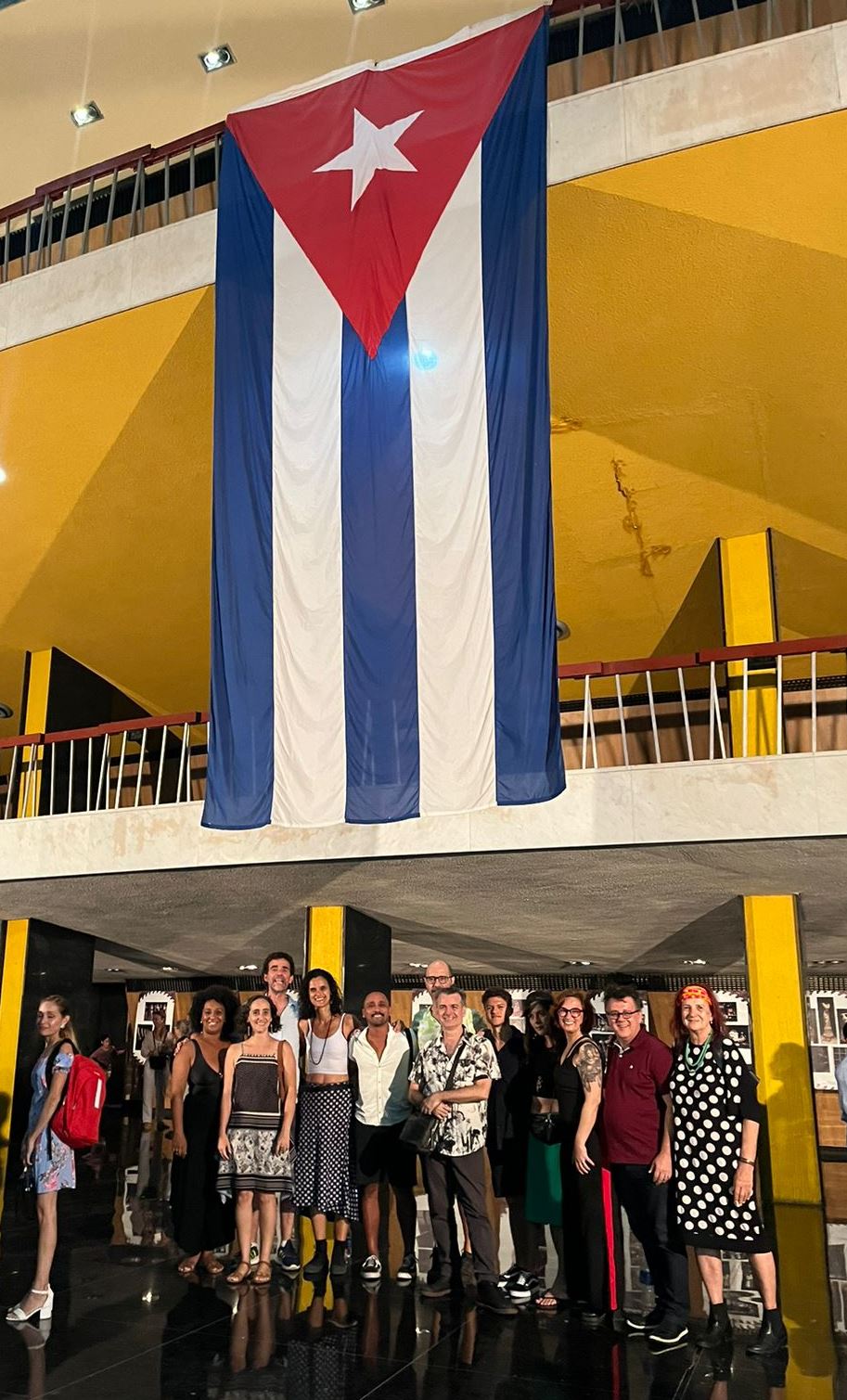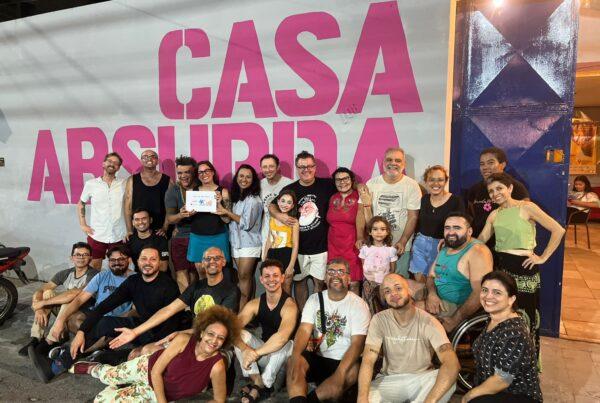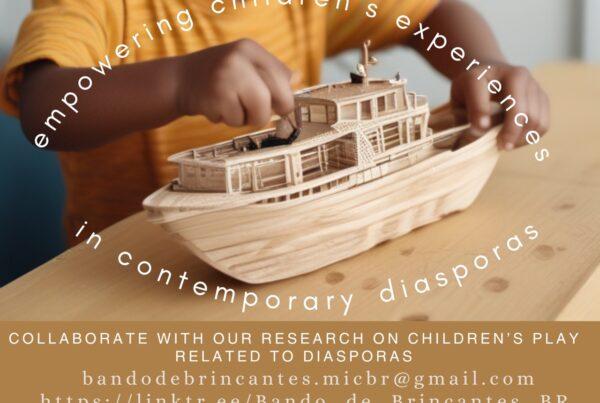Versão em português disponível abaixo / Versión en español disponible abajo
To the Brazilian Ministry of Culture;
To the National Foundation for the Arts – Funarte;
To the Municipal and State Culture Secretariats;
To Brazilian Society
Today, Saturday 1 June 2024, the day we started writing this Manifesto Letter, the activities of the XXI ASSITEJ World Congress and Festival of Performing Arts for Children and Youth “Voces de un Mundo Nuevo”, held in Havana – Cuba, a member country of the International Association of Theatre and Performing Arts for Children and Young People (ASSITEJ), officially come to an end.
In its 21st edition, the ASSITEJ World Congress occupies a place of great relevance for the global community of artists and researchers dedicated to the arts for and with children and young people around the world. More than 70 countries are members of the Association, represented by their national centres, in the case of Brazil, the CBTIJ/ASSITEJ Brasil, an association with 28 years of existence, 200 associate members and a significant history of actions aimed at promoting, disseminating and exchanging artists, groups and researchers in the country.
During the nine-day Congress, 700 delegates representing nations from all over the world were able to exchange and take part in various activities, such as a theatre festival, workshops, conferences and talks, as well as the ASSITEJ General Assembly, which sets the Association’s guidelines for the next three years. The 70 national centres represented added to the professional and regional networks that make up ASSITEJ’s extensive network.
In this sense, it is essential that each country is represented by a strong delegation that can organise partnerships and cooperation networks that give visibility to the territory to which we belong.
Brazil was represented by forty-six people, an all-time record in twenty-one editions of the Congress, including members of the CBTIJ/ASSITEJ Brasil board, and signed important partnership agreements, especially with ASSITEJ’s Ibero-American Network, made up of countries that, like us, are seeking investment equity in relation to European countries.
CBTIJ/ASSITEJ Brasil actively collaborated in the selection processes for the artistic programme, workshops and Professional Programme, as well as in the programme proposed by the Ibero-American Network of ASSITEJ. The professional networks were present: the researchers’ network (International Theatre for Young Audiences Network – ITYARN), chaired this year by a Brazilian, Prof. Dr. Paulo Merisio (UNIRIO); the playwrights network (Write Local, Play Global – WLPG), whose steering committee includes the Brazilian playwright and researcher Cleiton Echeveste; the inclusion network (International Inclusive Arts Network – IIAN), in Brazil represented by the artist and researcher Dr. Cristiane Muñoz; the early childhood arts network (Small Size), whose Brazilian presence was represented by Coletivo Antônia (DF) and Artefactos Bascos (SP); the new dance network (Young Dance Network), whose representative Bebê de Soares, a Brazilian living in Germany, was re-elected to the ASSITEJ International Executive Committee. Paulo Merisio, CBTIJ/ASSITEJ Brazil candidate to the Executive Committee, was elected and appointed to one of the three vice-presidencies of ASSITEJ International. Brazil was also present in numerous ways: the FIBRA Network of International Brazilian Arts Festivals for Children and Young People was represented by Aglaia Pusch, from the Paideia Festival (São Paulo), and Michele Menezes, from Mostra Espetacular (Paraná), who also took part in a panel on internationalization; Thaís Rossi (Cia Truks/São Paulo) was selected for the Next Generation Programme; Nelson Albuquerque (Pavilhão da Magnólia/Ceará) was selected for the Babel Project scenic design workshop; Projeto Gompa (with Frankie, a story in pieces) and Artefactos Bascos (with Batu) were Brazilian shows in the official programme; Teatro da Pedra (Minas Gerais) presented a dismantling of the show Okan and held a pedagogical meeting; Cia. Arthur-Arnaldo (São Paulo) gave a theatre workshop for young people; researcher Cintia Alves (Vozes Diversas/São Paulo) gave a workshop on theatre and inclusion; researchers Ana Júlia Marko (USP/PUCP), Ana Carolina Abreu (UESB), Juliana Oliveira (UESB), Taís Ferreira (UFRGS), Heloise Vidor (UDESC) and Cleiton Echeveste (UNIRIO) presented papers on their researches at the ITYARN Conference; Teca Teatro (Bahia), Teatro da Pedra (Minas Gerais) and Cia Paideia (São Paulo) took part in dramatised readings by Brazilian playwrights Amauri Falseti and Tom Figueiredo; Cia Paideia presented the documentary “Theatre: a Window to Life”; among other activities.
That said, to understand the scale of what ASSITEJ has been proposing and doing for almost sixty years, we have to consider that the Association encompasses a series of other reputable and trustworthy organisations and networks that discuss the sector’s global needs, be they linked to sustainability, research, the right of children and young people to access the arts, accessibility, among others, as well as local, national and regional public policies to encourage creation and exchange, and other demands arising from the sector itself.
We would like to stress that the Brazilian delegation, the second largest at the Congress, is made up of artists and researchers from all five regions of Brazil, who work artistically and politically in favour of children’s and young people’s rights to education and the arts. And unfortunately, around 90 per cent of the Brazilian participants did not receive any kind of aid or subsidy from the cultural sector at municipal, state or federal level.
We emphasise that this was not due to a lack of contact or short notice. Since the second half of 2023, theatre groups have requested help from the governments of the states where they live, and CBTIJ/ASSITEJ Brasil has made official invitations and requests at the federal level. It seems to us that letters, emails and notifications were neglected in favour of other agendas.
It is also worth highlighting the commitment of ASSITEJ International and, consequently, its national centres to the obligations of countries with regard to Articles 13 and 31 of the United Nations Convention, which affirms the freedom and right of children and young people to access the arts and culture. Therefore, the fight to guarantee these rights cannot only be fought by artists and researchers, by art makers, but by the whole country, represented by its competent and official bodies.
The Brazilian delegation in Havana, however, made excellent use of the trip. Artists from various parts of Brazil were able to meet on foreign soil to discuss common issues and needs, such as the lack of encouragement and priority from public authorities and the urgency of organization into networks to guarantee the visibility of actions as important to often neglected sectors of society as artists and children.
This is how this Manifesto Letter was born in Havana, Cuba.
A letter that represents many voices and yearns for a revolution.
It is necessary and urgent that a consistent place be guaranteed within the agendas of the Ministry of Culture, Funarte and the State and Municipal Culture Secretariats for art made for children and young people, as we have been pleading for and advocating for so long. As a society, we need to review the jargon that says that children represent the future. On the contrary, we believe and act so that children are today at the centre of the revolution we need to make in the name of a sovereign nation project.
CBTIJ/ASSITEJ Brasil is represented by eleven Regional Centres, in addition to its central in Rio de Janeiro, which together cover all regions of the country and has been fulfilling a mission of expansion, even though it does not have the subsidies to guarantee its existence. We need a strong centre that can increasingly expand the reach of its actions across the vast national territory and that can represent Brazil internationally, guaranteeing the visibility of artists and researchers who work ceaselessly for children and young people, through the arts intended for them and which, despite all the lack of support, have been expanding and gaining peculiarities and specificities that no longer fit into the macro-languages cut out by public policies.
This Manifesto Letter is an urgent and fundamental RE-ACTION for the visibility of this field in particular, which is not being understood by our cultural departments. As a result, questions arise about, among other things, the lines of public calls and funding programmes that do not profoundly understand what our activity is all about. At the same time, all the effort put in by artists and researchers to make up a Brazilian representation at this Congress, which proved to be absolutely significant for our country, has received little or no recognition from the competent bodies and authorities.
We could go on for pages about the importance of our commitments, aesthetic and educational debates and the political relevance that cuts across this movement, but we want to believe that this Manifesto Letter will generate opportunities for dialogue and interlocution that will effectively move our agenda forward.
And as we learnt during this Congress with our comrades from Latin America and the Caribbean: “Hasta la ternura siempre!”
Our saludos!
Luciana Comin (Head of the Board)
Cleiton Echeveste (Secretary)
Leonardo Carnevale (Treasurer)
CBTIJ/ASSITEJ Brasil
Ana Carolina Fialho Abreu (UESB)
Ana Julia Marko (USP/PUCP)
Artefactos Bascos (SP)
Bando de Brincantes (RS)
Buia Teatro Company (AM)
Carnevale Produções (RJ)
Catarsis Arte para Infância e Juventude (SP)
Cia. Arteira (RJ)
Cia. Arthur-Arnaldo (SP)
Cia. de Teatro Sala 3 (GO)
Cia. Dom Caixote (SP)
Cia. Paideia (SP)
Cia. Vento Minuano (RS)
Coletivo Antônia (DF)
Coletivo Gompa (RS)
Eranos Círculo de Arte (SC)
Heloise Vidor (UDESC)
Insensata Cia. de Teatro (MG)
Juliana Oliveira (PPGREC/UESB)
Mostra Espetacular (PR)
Pandorga Cia. de Teatro (RJ)
Pavilhão da Magnólia (CE)
Taís Ferreira (Faculdade de Educação/UFRGS)
Teatro da Pedra (MG)
Teca Teatro (BA)
Tibicuera e Companhia (RJ)
Trupe de Truões (MG)
Vozes Diversas (SP)





